The Race, Empowerment, and Justice (REJ) Project at SF State supports faculty development in the College of Ethnic Studies in teaching, research, and creative projects. Within the College of Ethnic Studies, the Race, Empowerment, and Justice (REJ) Project supports faculty, units, departments and the college with projects that are extramurally funded.
Projects and Partnerships
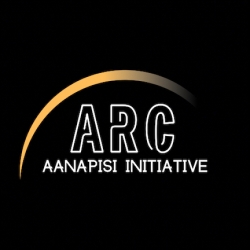
Access, Retention and Community (ARC)
Access, Retention and Community (ARC) is a Department of Education AANAPISI cooperative grant initiative that seeks to expand SFSU and the San Mateo County Community Colleges' institutional capacity to address an equity gap in college access, persistence, transfer, and completion for transfer students. ARC is designed to increase the enrollment, graduation, and career-readiness of underserved Asian and Pacific Islander American (AANAPI) and low-income (LI) students. The supports include: peer mentoring, faculty workshops and learning communities (LCs), student support communities and LCs, transfer-related events, workshops, and visits to SFSU.
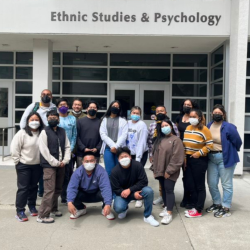
Responsive Education for Access, Community, and Hope (REACH)
The Responsive Education for Access, Community, and Hope (REACH) Program was created to improve and expand San Francisco State’s capacity to eliminate an equity gap in college access, persistence, and completion.
REACH offers a comprehensive set of culturally responsive and equity-minded access, awareness, and financial literacy strategies designed to improve college access, persistence, and completion of Asian American and Pacific Islander (AA&PI) and low-income (LI) students.
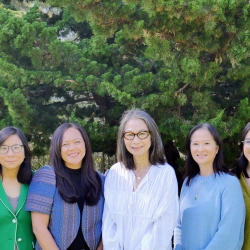
Asian American Collective Action for Racial Equity and Solidarity (AA CARES)
Following the COVID-19 pandemic and subsequent historic rise in anti-Asian hate, Asian American Collective Action for Racial Equity and Solidarity (AA CARES) was founded in 2023 to address a collective need for healing amongst Asian Americans and Pacific Islanders (AAPI) communities. Housed under SFSU's Department of Asian American Studies, AA CARES sponsors initiatives focused on Narrative Change, Youth Educational Equity, and Research to address physical, mental, spiritual health, and wellness for AAPIs and other marginalized communities.

Justice, Equity, Diversity and Inclusion (JEDI) Institute
The Center for Equity & Excellence in Teaching & Learning (CEETL) invites faculty to join a semester of cohorts in this popular JEDI PIE institute, which builds a community of JEDI (Justice, Equity, Diversity and Inclusion) protagonists through twenty-five hours of practice developing anti-racist Pedagogies for Inclusive Excellence (PIE) and dismantling white supremacy in online teaching. For more anti-racism resources visit these CEETL's webpages:
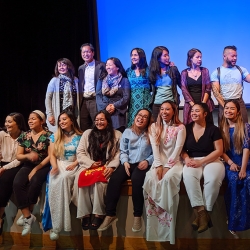
DVAN@SFSU
DVAN (The Diasporic Vietnamese Artists Network) was invited to launch DVAN@SFSU in Fall 2019 to enrich students’ lives with robust educational and professional opportunities ranging from internships, scholarships, mentorship opportunities, and a lifelong network of Vietnamese artists, academics, and organizers. The DVAN@SFSU project is designed to address the intergenerational gaps within the diaspora caused by cultural, racial, and social rifts enhanced by a history of war and migration. Through our academic and community service programs, we create collaborative space for students to be empowered and learn about their history and identity while providing scholarship opportunities and skill sets to enhance their academic experience, prepare them for graduate school, and enter the job market. DVAN@SFSU is a hub of collectivity and collaboration for diasporic Vietnamese students, artists, academics, and community organizers of the next generation to imagine and build new global cultural and creative legacies.
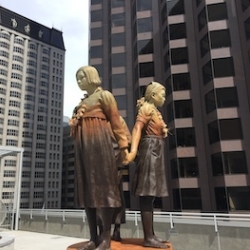
"Comfort Women" Research and Creative Scholarship Small Grants Program
The “Comfort Women” Research and Creative Scholarship Small Grants Program awards small grants of up to $6,000 to faculty and of up to $4,000 to graduate and undergraduate students who have expertise or completed course work in Asian American Studies, Ethnic Studies, Women and Gender Studies, or Sexuality Studies for conducting research or creative projects on “comfort women.” The projects could reflect on the experiences of “comfort women,” the role of activists in creating remembrances, address the intergenerational trauma and impact of “comfort women” among girls and women today, or comparative experiences of the “comfort women” experience with that of other state sanctioned sexual violence, sexual slavery and human trafficking occurring in the world. The Comfort Women” Research and Creative Scholarship Small Grants Program is made possible through an anonymous donation in partnership with CARE (Comfort Women Action for Redress and Education).
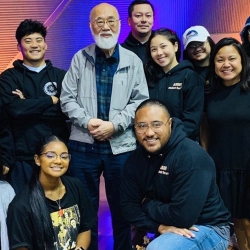
Asian American and Pacific Islander Retention and Education (ASPIRE) Program
Among the goals of an Ethnic Studies pedagogy is self-determination for black, Indigenous, and communities of color often invisible to and within the academy. Self-determination, or the ability for dispossessed people to center one’s experiences in shaping one’s material reality, was an impetus for the formation of the AA&PI Student Services with the Asian American & Pacific Islander Retention & Education (ASPIRE) Program.
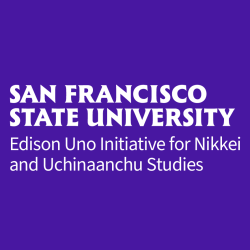
Edison Uno Initiative for Nikkei and Uchinaanchu Studies (EUINUS)
The Edison Uno Initiative for Nikkei and Uchinaanchu Studies (EUINUS) aims to deepen understanding of Japanese American and Okinawan diasporas in the United States. Inspired by the life and legacy of Edison Uno — a Japanese American civil rights activist who fought for redress and reparation following WWII incarceration — EUINUS advances research, education, and community engagement grounded in a commitment to social justice.